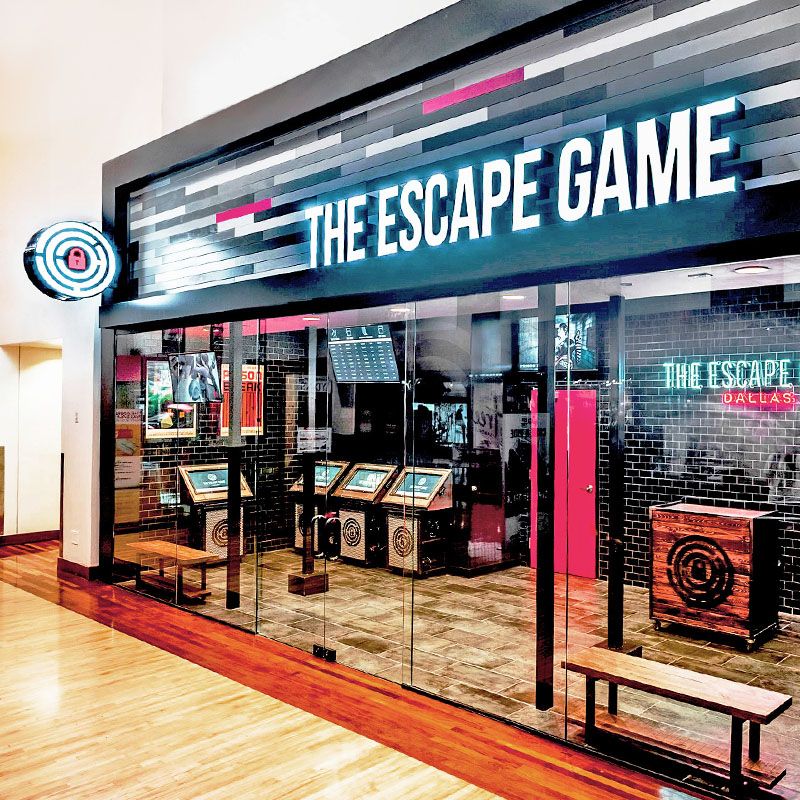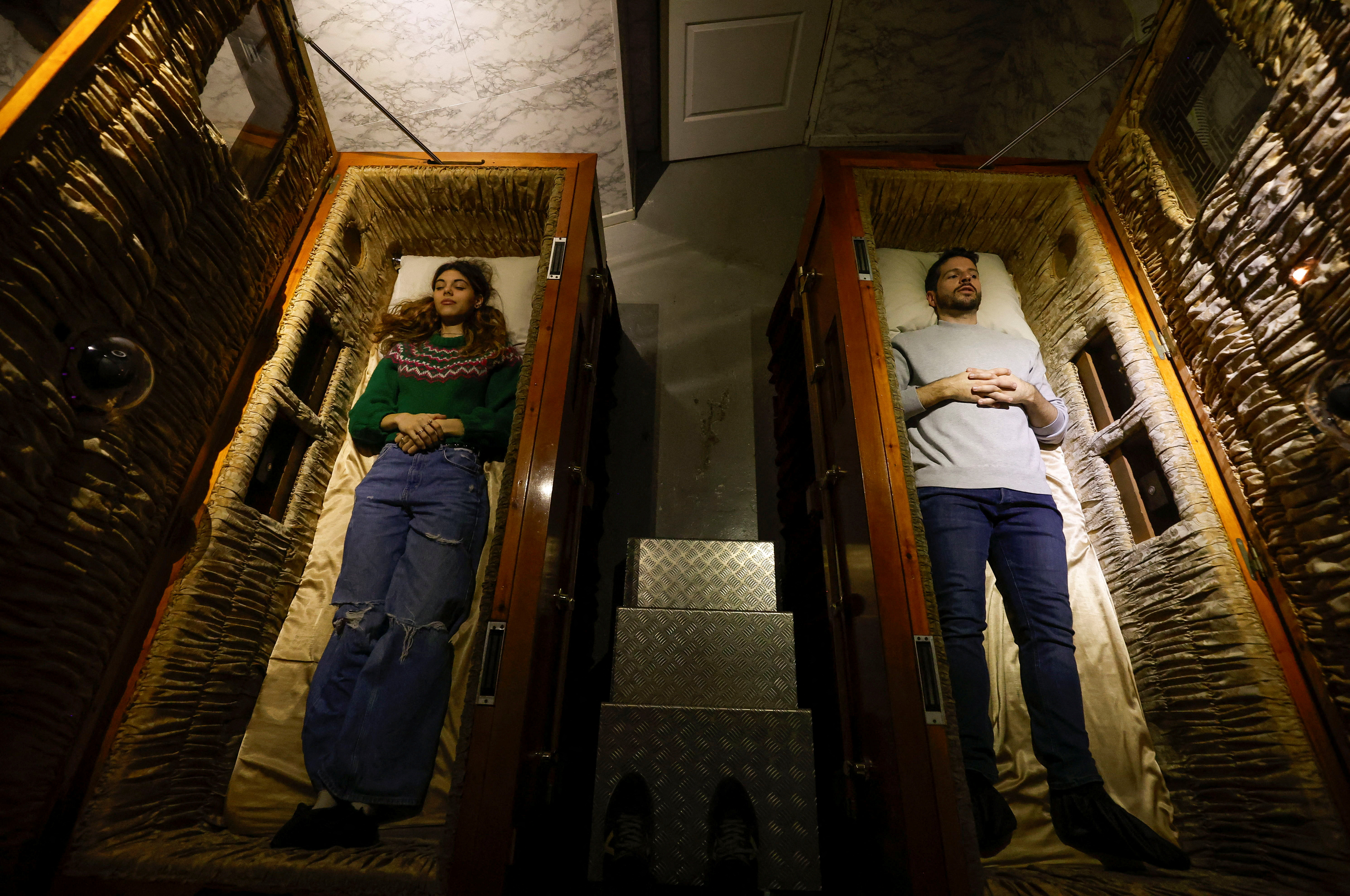Best Escape Room-- Test Your Skills and Solve the Secret
Best Escape Room-- Test Your Skills and Solve the Secret
Blog Article
Group Strategies: How to Collaborate Efficiently in a Retreat Room
Teams have to actively listen to each participant's understandings, appoint duties that line up with private strengths, and maintain normal check-ins to ensure emphasis and stop redundancy. By cultivating a setting that values cohesion and flexibility, teams can dramatically heighten their effectiveness and success prices.
Establish Clear Communication

To facilitate clear communication, it is essential to designate a main point of contact for details circulation. This role entails summing up findings and recommended techniques to make certain every person remains on the very same page. In addition, embracing a systematic technique to discussions can avoid chaotic exchanges. For instance, brief, focused updates from each staff member can keep the group notified without frustrating them with details.

Designate Roles Tactically
While clear communication establishes the foundation for reliable team effort, assigning functions tactically makes certain that each staff member's staminas are used properly. In an escape area situation, the time-sensitive and intricate nature of obstacles demands an efficient technique to job delegation. By identifying and leveraging private expertises, groups can optimize their problem-solving capabilities and enhance total performance.
Someone with a keen eye for information might stand out in discovering hidden things, while a sensible thinker might be much better matched to addressing challenges. This role commonly needs strong organizational and social abilities.
Second, ensure that duties are flexible and adaptable. As new challenges emerge, the group has to have the ability to pivot, reallocating jobs as required. This versatility helps preserve momentum and protects against bottlenecks that could take place due to rigid function assignments.
Eventually, a tactical strategy to role project not just optimizes the strengths of each staff member but additionally fosters a natural atmosphere, driving the group towards a successful getaway.
Make Use Of Diverse Abilities
Identifying and using the diverse skills within your team can dramatically boost your efficiency in a getaway area. Each group member brings unique strengths to the table, and properly leveraging these abilities can speed up analytical and improve overall effectiveness. As an example, an employee with solid logical abilities could succeed at analyzing intricate codes or patterns, while an additional with keen empirical capacities might promptly find covert hints that others may ignore.
Reliable communication is essential to making use of these diverse skills. Motivate staff member to voice their understandings and ideas without delay, making certain that all prospective options are taken into consideration. This inclusive method cultivates a vibrant environment where creativity and critical reasoning can grow. Furthermore, appointing tasks that align with each participant's staminas can avoid traffic jams and guarantee that progression is continuous.
Moreover, diversity in abilities commonly equates to variety in thinking designs, which is very useful in an escape room setting. While some obstacles may call for sensible reasoning and accuracy, others might gain from creative and lateral thinking. By acknowledging and leveraging this variety, teams can address a broader series of difficulties better, therefore increasing their chances of an effective a knockout post getaway.
Manage Time Successfully

Identify noticeable puzzles and separate jobs based on group participants' toughness, ensuring that no one is still. This practice can help keep the team concentrated and protect against time from sliding away undetected.
Additionally, stay clear of tunnel vision. If a puzzle is taking also long, rotate group participants or carry on to another obstacle, returning later with fresh point of views. Interaction is paramount-- maintain view it everyone updated on addressed puzzles and staying tasks to stay clear of repetitive efforts.
Last but not least, make use of any kind of hints or ideas moderately yet tactically - best escape room. Knowing when to request for help can save beneficial time. By adhering to these time management concepts, groups can significantly boost their possibilities of an effective and satisfying escape room experience
Debrief and Mirror
Representation is a crucial facet of group growth and renovation in the context of getaway spaces. Once the obstacle is finished, whether efficiently or not, it is essential for the group to take part in a structured debriefing session. This process enables staff member to analyze their performance, recognize toughness, and pinpoint areas for enhancement.
Begin the debrief by discussing what worked out. Highlight specific circumstances of effective interaction, analytic, and collaboration. Recognizing these favorable habits strengthens them and encourages their repetition in future difficulties.
Following, resolve the challenges experienced. Discuss minutes of complication, miscommunication, or inadequate approaches. Encourage an open and useful dialogue where employee can share their point of views without concern of objection. This promotes a society of continuous enhancement and learning.
Final Thought
In verdict, successful cooperation in a getaway space is predicated upon clear interaction, strategic function projects, the efficient Source use of varied skills, and efficient time monitoring. By producing a natural and adaptive group atmosphere, the chance of efficiently fixing puzzles and attaining the goal of leaving the area is dramatically enhanced.
Report this page